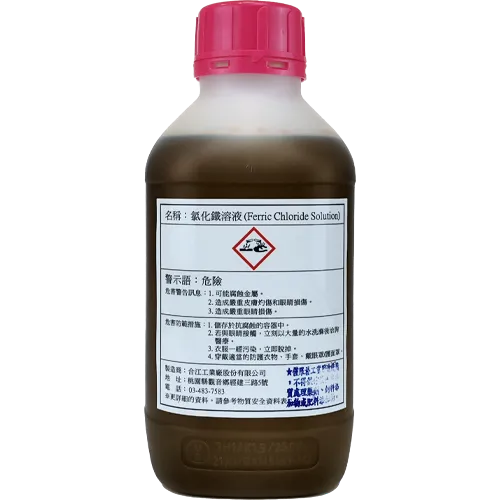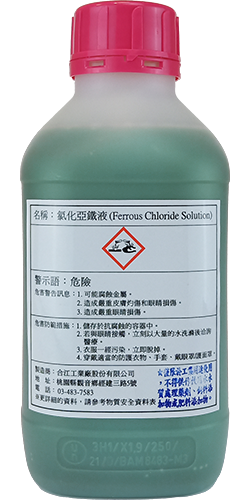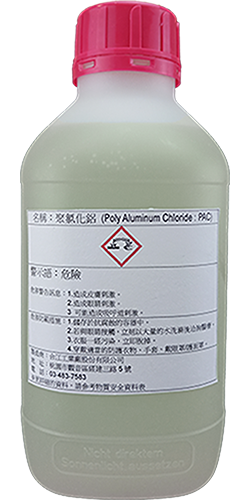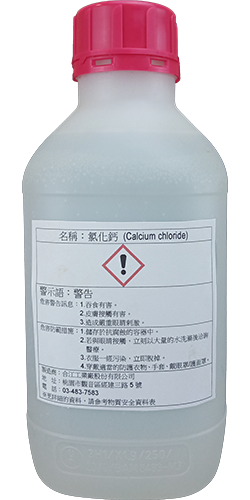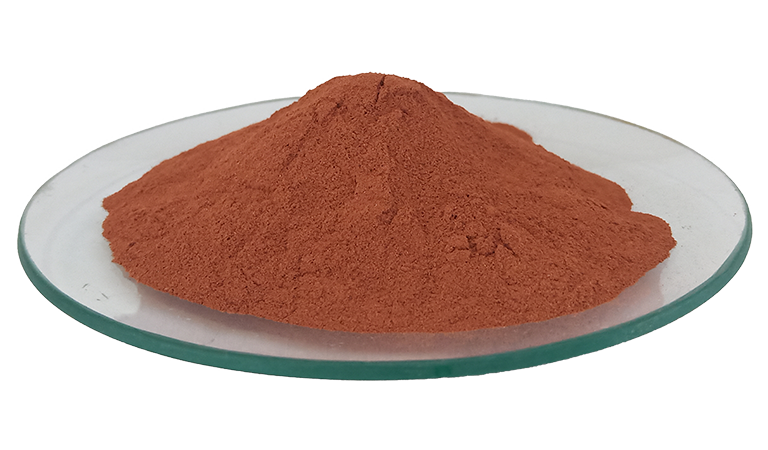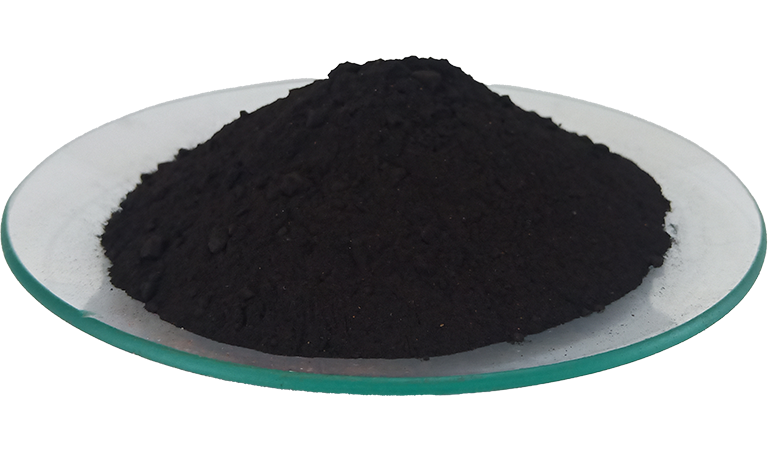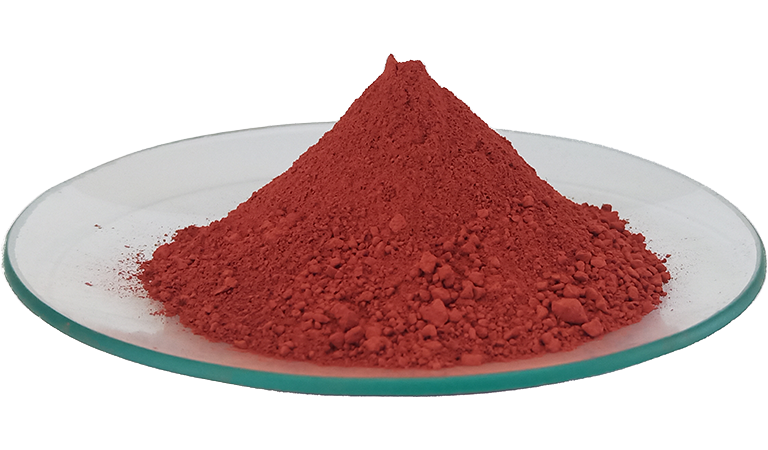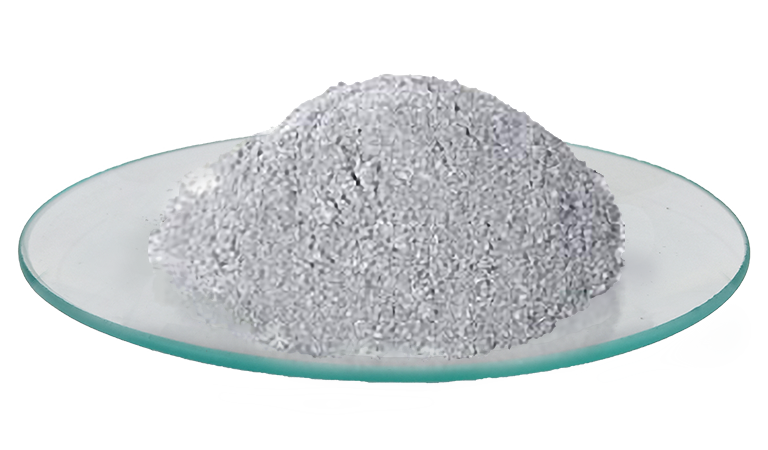Calcium Chloride
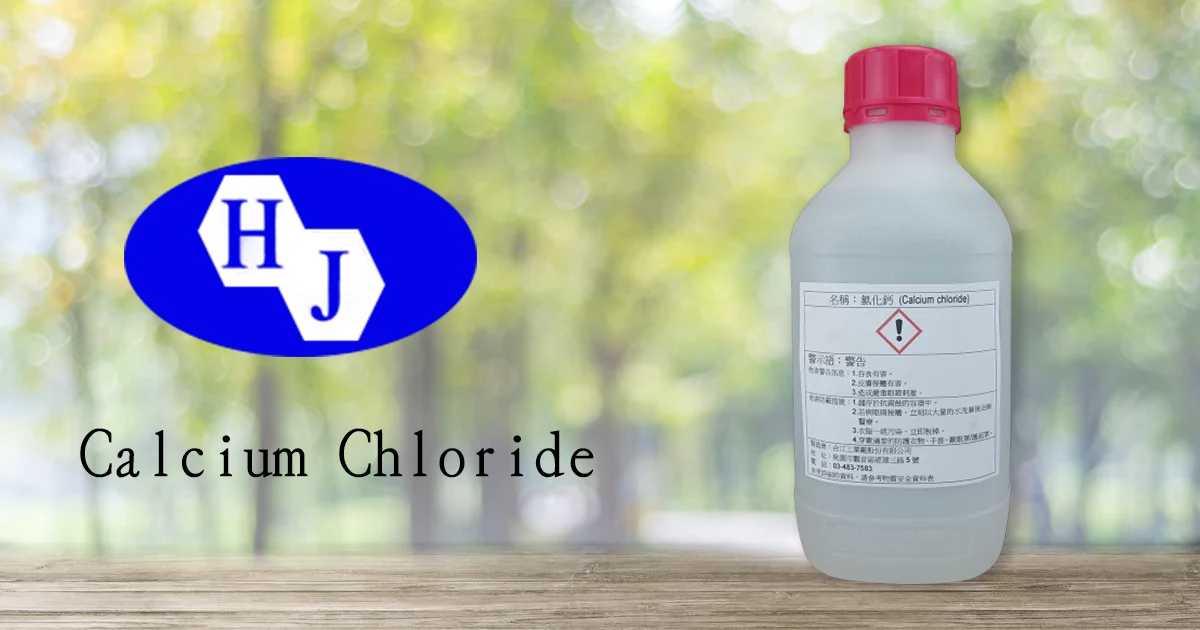
Product Introduction
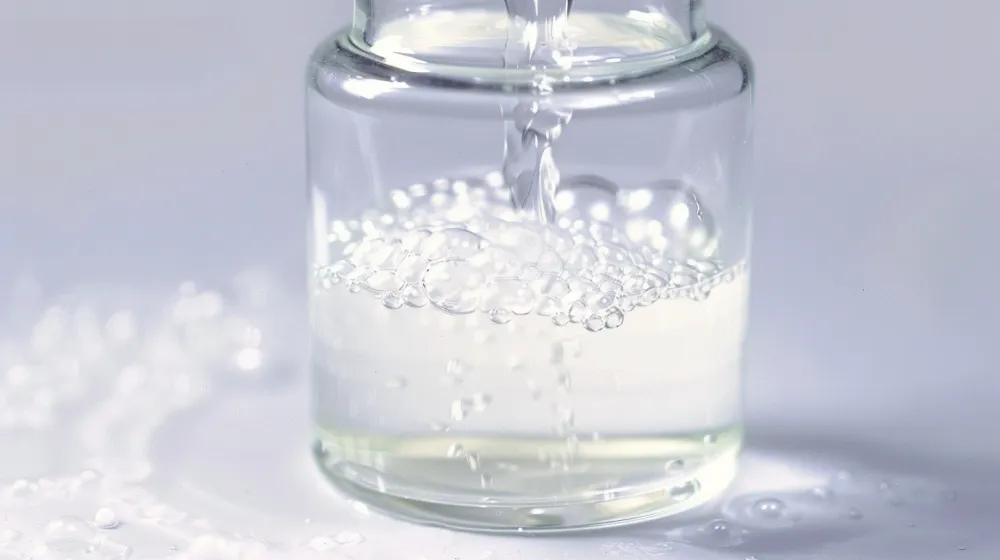
Calcium Chloride Solution, with the molecular formula CaCl2, is an inorganic compound commonly used in industrial and commercial applications. Calcium chloride has strong hygroscopic properties, is soluble in water, and forms a transparent, colorless neutral solution. A 37% calcium chloride solution is very common in Taiwan's industry, especially in chemical products.
Properties of Calcium Chloride Solution
Calcium chloride solution (CaCl2) is an inorganic compound and a common salt of calcium. It is hygroscopic, soluble in water and ethanol, and forms an acidic solution in water.
Preparation of Calcium Chloride Solution
It can be prepared by reacting calcium carbonate or calcium hydroxide with hydrochloric acid:
CaCO3 + 2HCl → CaCl2 + CO2 + H2O
Ca(OH)2 + 2HCl → CaCl2 + 2H2O
It can also be prepared by reacting limestone with hydrogen chloride gas.
Applications of Calcium Chloride Solution
Industrial uses: Dehydrating agent, de-icing agent, concrete additive, etc.
Calcium chloride solution is a versatile chemical substance that plays an important role in many fields due to its excellent hygroscopicity and multifunctional properties.
Specifications and Ingredients
Calcium Chloride Content |
35~36% |
Specific Gravity |
>1.36 |
pH |
4.5~9 (10g/L solution) |
Appearance |
Light yellow or colorless transparent liquid |
Packaging Specifications
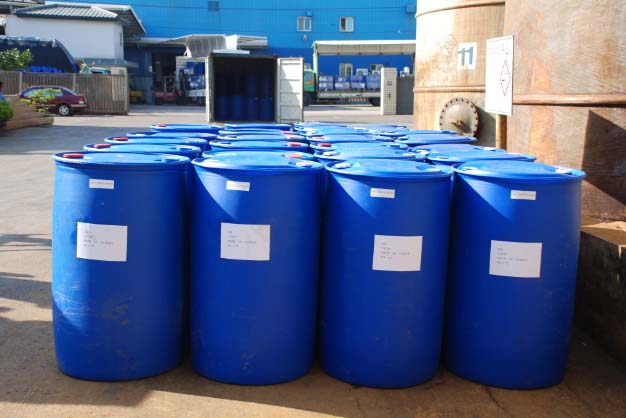
Barrel Specifications
20 ft Container, 50 Gallon PE Barrel Packaging

Transport Tanker
Various Transport Tankers, Capacity Range from 3 to 20 Tons.
Features and Applications
Fluoride Solution Treatment Applications

Calcium chloride is often used to treat fluoride-containing solutions, such as hydrofluoric acid wastewater. Calcium chloride can react with fluoride ions to form calcium fluoride precipitate, thereby removing fluoride ions from water and achieving purification. This is especially important in industrial wastewater treatment, effectively reducing water pollution.
Specific advantages include:
- Efficient removal of fluoride ions
- Reducing environmental pollution
- Improving water quality safety
In addition, calcium chloride is also widely used in wastewater treatment, not only to remove fluoride ions from water but also to effectively treat other harmful substances, ensuring the cleanliness and safety of the water environment.
Calcium chloride in industrial wastewater treatment not only improves treatment efficiency but also reduces environmental impact.
Refrigeration and Ice-Making Applications

Calcium chloride solution can be used as brine for refrigeration and ice-making. Due to its low freezing point, it can provide a stable low-temperature environment, suitable for various refrigeration and ice-making equipment. In addition, calcium chloride can improve ice-making efficiency and quality, making it an important additive in the refrigeration and ice-making industry.
Specific advantages include:
- Providing a stable low-temperature environment
- Improving ice-making efficiency
- Enhancing ice quality
In Taiwan, calcium chloride is widely used in the refrigeration and ice-making industry, not only improving production efficiency but also ensuring high product quality. The stability of calcium chloride solution makes it an indispensable chemical in the ice-making process.
Calcium chloride solution in refrigeration and ice-making applications demonstrates its superior stability and high efficiency.
Construction Antifreeze Applications

In the construction industry, calcium chloride can be used as an antifreeze. It accelerates the hardening process of concrete, especially in low-temperature environments, improving construction efficiency. In addition, calcium chloride can increase the frost resistance of concrete and mortar, preventing structural damage caused by low temperatures.
Specific advantages include:
- Accelerating concrete hardening
- Improving construction efficiency
- Enhancing frost resistance
In Taiwan's construction projects, calcium chloride antifreeze is widely used, significantly improving construction quality and efficiency, especially during winter construction. The use of 37% calcium chloride solution ensures the stability and durability of building structures under low-temperature conditions.
Calcium chloride in construction antifreeze applications demonstrates its excellent performance in improving construction quality and frost resistance.
Enhancing Mortar Frost Resistance

Calcium chloride can not only be used as an antifreeze for concrete but also enhance the frost resistance of building mortar. It can increase the strength and stability of mortar under low-temperature conditions, preventing cracking and spalling caused by freezing, extending the lifespan of buildings, and improving construction quality.
Specific advantages include:
- Increasing mortar strength
- Preventing cracking and spalling
- Extending the lifespan of buildings
In Taiwan's construction engineering, calcium chloride mortar additive is widely used. Its excellent performance makes it the preferred material for improving building quality and durability.
Calcium chloride as a mortar additive shows outstanding performance in enhancing mortar frost resistance and overall stability.
Frequently Asked Questions
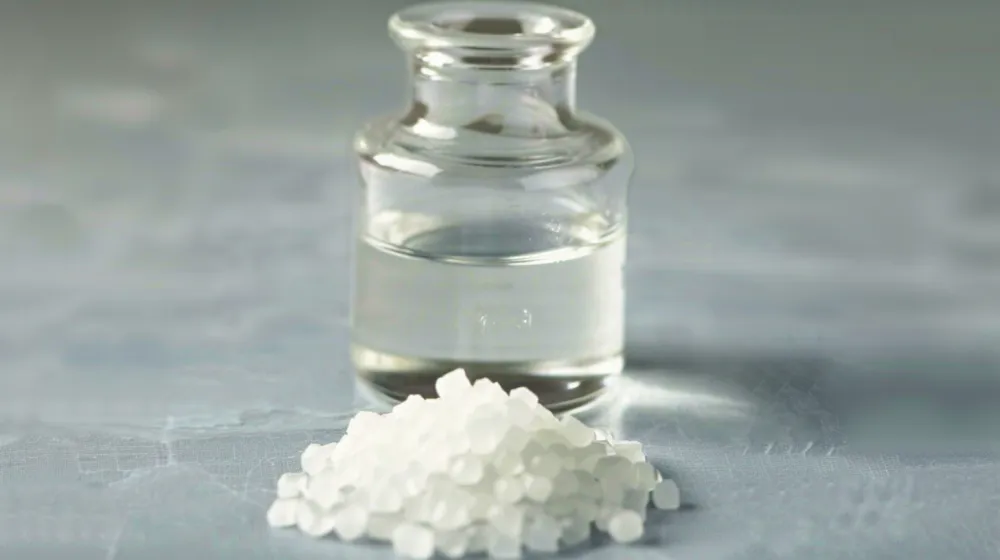
Question 1: What are the specific industrial applications of calcium chloride?
Industrial-grade calcium chloride has a wide range of applications in various industrial fields. It is commonly used in oil drilling as an additive in drilling fluids and completion fluids to prevent well wall collapse. Calcium chloride is also used as a de-icing agent on roads, as it can effectively melt ice at low temperatures. Additionally, it is used as an early strength agent in the construction industry to shorten the setting time of concrete. In the chemical industry, calcium chloride is used to produce various chemicals and as a desiccant to remove moisture from gases and liquids.
Question 2: What safety precautions should be taken during the preparation of a 37% calcium chloride solution?
During the preparation of a 37% calcium chloride solution, the following safety precautions should be taken:
- Wear protective gloves and goggles to avoid contact with skin and eyes.
- Operate in a well-ventilated area to avoid inhaling dust.
- Strictly control reaction conditions to prevent excessive reactions that could lead to hazards.
Question 3: How does the hygroscopicity of calcium chloride affect its applications?
The strong hygroscopicity of calcium chloride makes it widely used in desiccants and dehydrating agents. Its hygroscopic properties allow it to effectively absorb moisture from the air, keeping products dry and stable. This characteristic makes calcium chloride an important desiccant in the industrial sector.
Question 4: What are the advantages of using calcium chloride as a desiccant in the chemical industry?
Calcium chloride as a desiccant in the chemical industry has several advantages. Firstly, it has strong hygroscopic properties, which allow it to quickly absorb moisture and keep the environment dry. Secondly, calcium chloride is relatively inexpensive and cost-effective. Additionally, it is easy to handle and store, making it a widely used desiccant in the chemical industry.
Safety Data Sheet
Quick Browse All Products
Professional Services
Resource Reuse
Recycling and reuse of waste liquid from printed circuit boards and metal surface treatment, achieving resource circulation and environmental protection.
Learn moreMetal Etchant
Ferric Chloride Solution
Ferric Chloride: An efficient agent for metal etching, water treatment, and various industrial applications.
Learn moreWater Treatment Agents
Ferric Chloride Solution
Ferric Chloride: An efficient agent for metal etching, water treatment, and various industrial applications.
Learn moreFerrous Chloride Solution
Ferrous Chloride: A high-efficiency reducing agent for wastewater treatment, fabric dyeing, and various industrial uses.
Learn morePoly Aluminum Chloride (PAC)
Poly Aluminum Chloride: An efficient wastewater treatment agent, suitable for various types of wastewater, improving treatment efficiency.
Learn moreCalcium Chloride
Calcium Chloride: Used for fluorine-containing wastewater treatment, refrigeration, ice making, and as an antifreeze in construction.
Learn moreDiverse Copper Metals
Copper Powder
Copper Powder: High purity, suitable for powder metallurgy, electronic components, and chemical catalysts.
Learn moreCopper Oxide Powder
Copper Oxide: Used in catalysts, glass coloring, analytical reagents, and petroleum desulfurization.
Learn moreCuprous Oxide Powder
Cuprous Oxide: Used in antifouling paint, pesticides, red glass, and copper salt production.
Learn moreSilver-Coated Copper Powder
Silver-Coated Copper Powder: Enhances conductivity and oxidation resistance, suitable for conductive adhesives, paints, and inks.
Learn more

